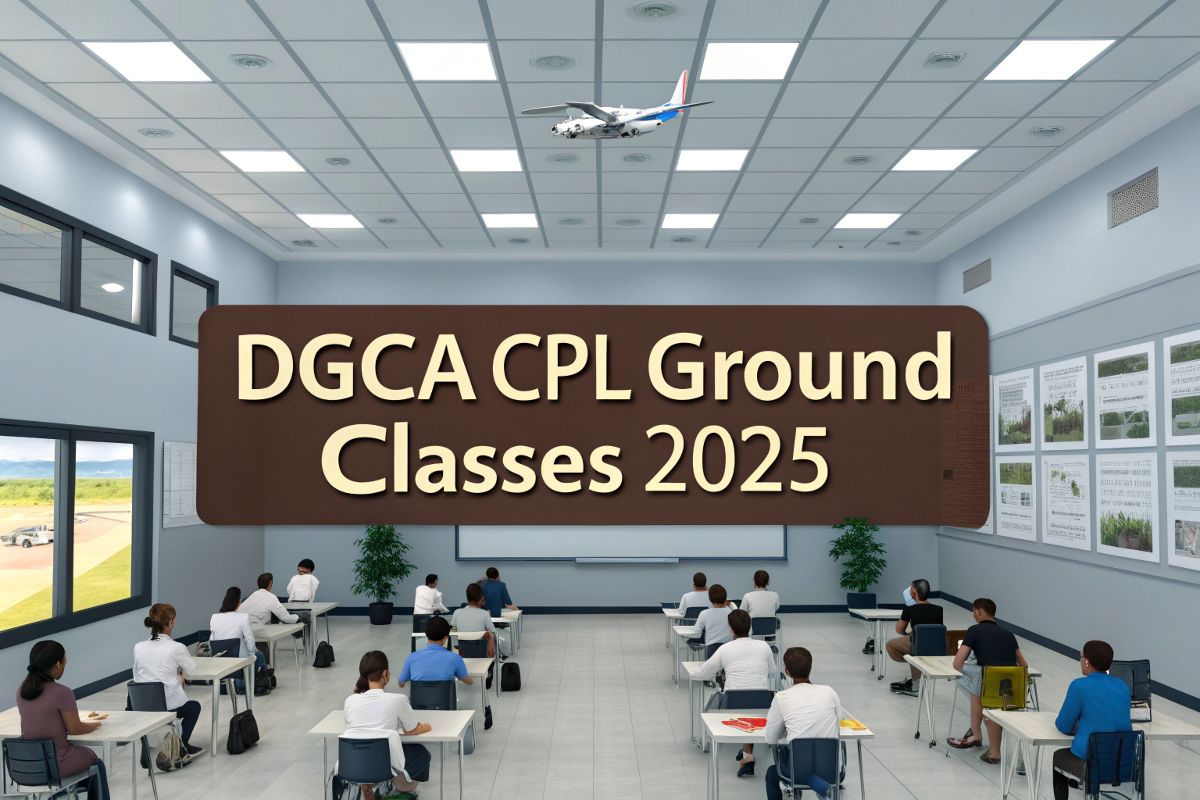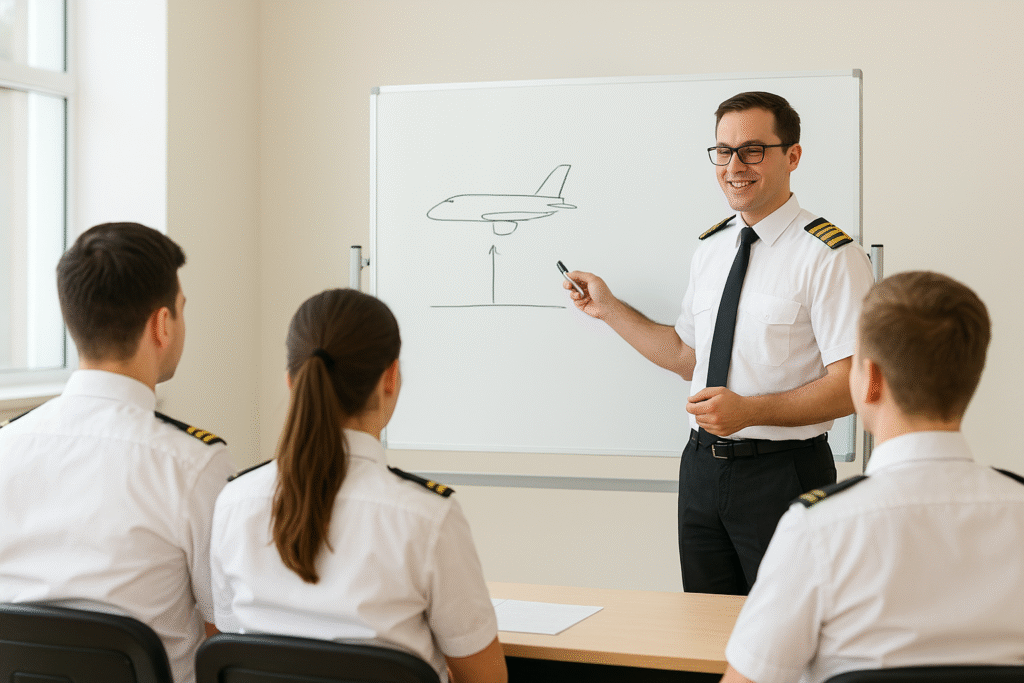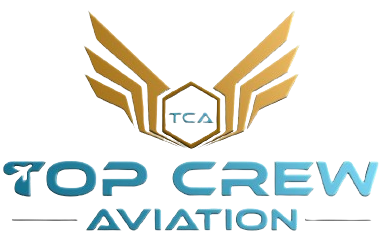
Introduction
Dreaming of a career in the skies? For every aspiring pilot in India, DGCA CPL ground classes are the very first and most essential step. These classes prepare students for the Commercial Pilot Licence (CPL) exams conducted by DGCA, equipping them with in-depth theoretical knowledge and practical understanding of aviation.
From air navigation to aviation meteorology and from radio telephony to technical general, ground classes cover it all. With the updated DGCA CPL syllabus 2025, students now face a more application-oriented exam pattern designed to match global aviation standards.
In this guide, we’ll break down everything—eligibility, structure, subjects, exam pattern, and preparation strategy—so you know exactly how to plan your CPL journey.
✔ Dreaming of becoming a pilot? Before starting with DGCA CPL ground classes, it’s important to understand the full journey of a pilot course in India.

Eligibility Criteria
Before stepping into DGCA ground classes, students must meet the basic DGCA CPL requirements. Here’s what you need to know:
Educational Qualification
- A minimum of 10+2 with Physics and Mathematics is mandatory.
- The passing requirement is 33% marks in both subjects, making it accessible to more students.
- Students who have completed equivalent qualifications (such as NIOS or international boards) are also eligible.
Medical Certificates
- Class II Medical Certificate: Required for enrollment in ground classes.
- Class I Medical Certificate: Mandatory before the issuance of the CPL license.
New Update for Arts & Commerce Students
DGCA is considering allowing students from arts and commerce backgrounds (with bridge courses in Math and Physics) to apply for CPL, which may be effective soon. This is a game-changer for broadening opportunities in aviation.
✔ Institutes like Top Crew Aviation (TCA) guide students through DGCA medicals and eligibility checks to ensure a smooth start.
Structure & Duration of DGCA CPL Ground Classes
The structure of DGCA CPL ground classes is designed to ensure students have enough time and resources to prepare thoroughly.
- Course Duration: Typically 3 to 6 months, depending on the academy and batch size.
- Exam Schedule: DGCA conducts exams every three months in April, July, October, and January.
- Validity: Once you clear a subject, the result is valid for 30 months. During this time, you must clear all remaining papers.
This flexible approach ensures students can learn at their own pace without losing motivation.
Subjects Covered in DGCA CPL Ground Classes
The DGCA CPL syllabus is comprehensive, covering both theoretical and practical aspects of aviation. Let’s look at each subject in detail:
- Air Navigation
– Focuses on mapping, flight planning, navigation instruments, and the use of aids such as VOR, DME, NDB, and GPS.
– Students learn how to plot flight routes, calculate headings, and ensure safe and accurate navigation. - Aviation Meteorology
– Covers weather systems, pressure patterns, thunderstorms, turbulence, wind shear, and cloud identification.
– A strong grasp of weather is crucial since pilots make critical decisions based on meteorological reports. - Air Regulations
– Focuses on DGCA and ICAO aviation rules.
– Includes procedures for flight operations, responsibilities of pilots, airspace classifications, and safety protocols. - Technical General
– This is one of the toughest yet most interesting subjects.
– Covers aerodynamics, aircraft systems, engines, instruments, human factors, and performance calculations. - Technical Specific
– Tailored for the specific aircraft type on which you’ll train.
– Covers aircraft manuals, performance data, operational limitations, and emergency procedures. - Radio Telephony (RTR)
– Focuses on aviation communication protocols.
– Includes standard phraseology, emergency communication, and radio navigation aids.
Together, these subjects form the backbone of DGCA CPL ground classes, ensuring students are well-prepared both for the exams and real-world flying.
Exam Pattern (2025 Updates)
The DGCA CPL exam has been updated to make it more aligned with global aviation standards. Here’s what’s new for 2025:
Format & Structure
– MCQ-based exams: 100–150 questions per subject.
– Duration: 120–180 minutes depending on the paper.
– Passing Marks: 70% minimum in each subject.
Key Changes in 2025
– Greater focus on scenario-based and application-oriented questions.
– Rote memorization is no longer enough—students must demonstrate practical knowledge.
– No negative marking, but oral and practical assessments are included for certain modules.
Subjects in Exams
– Air Navigation
– Aviation Meteorology
– Air Regulations
– Technical General
– Technical Specific
– Radio Telephony
This exam structure ensures that only well-prepared candidates can succeed.
Training Approach & Support in DGCA Ground Classes
Modern ground schools use innovative methods to make learning effective and interactive.
Study Materials
– Comprehensive notes, DGCA-approved books, and updated question banks.
Teaching Methods
– Online and offline lectures led by experienced instructors (often ex-pilots).
– Computer-Based Training (CBT) modules for interactive learning.
– Mock tests to simulate real exam conditions.
Extra Support
– Doubt-clearing sessions.
– Peer study groups for collaborative learning.
– Counseling and career guidance.
This training ecosystem ensures students not only clear exams but also build a strong foundation for their aviation careers.
Final Conclusion
The journey to becoming a pilot begins with DGCA CPL ground classes, and mastering them is crucial for success. From understanding navigation to handling aircraft systems, these classes equip you with all the knowledge required to clear the DGCA CPL exam.
With the updated exam pattern for 2025, DGCA is raising the bar by emphasizing real-world applications over rote learning. Students must focus on conceptual clarity, scenario-based preparation, and regular practice.
If you’re serious about aviation, investing your time and energy in DGCA ground classes is the first step toward taking off in your career as a professional pilot.
FAQs
- What are DGCA ground classes?
DGCA ground classes are training sessions that prepare students for the Commercial Pilot Licence (CPL) exams in India, focusing on theoretical aviation subjects. - How long are DGCA CPL ground classes?
On average, ground classes take 3–6 months, depending on the academy and learning pace. - What is the minimum passing score in DGCA CPL exams?
Students must score at least 70% in each subject to qualify. - Do arts and commerce students qualify for DGCA CPL?
Currently, only science stream students with Physics and Math can apply, but DGCA is working on making it possible for arts and commerce students (with additional requirements). - Is Radio Telephony included in DGCA CPL ground classes?
Yes, Radio Telephony (RTR) is a part of the syllabus and is essential for aviation communication training.
Frequently Asked Questions
No FAQs found.



